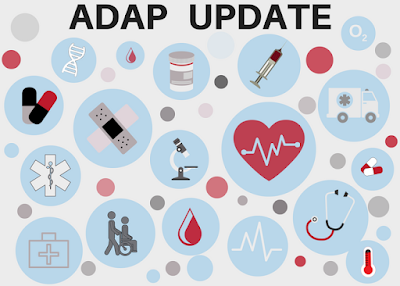By: Ranier Simons, ADAP Blog Guest Contributor
Medical science continues to advance at a rate that outpaces healthcare policy and subsequently healthcare practices. This is especially true regarding novel lifesaving therapies and modalities for chronic diseases such as HIV/AIDS. Treatment for people living with HIV/AIDS (PLWHA) is expensive, long-term, and requires consistency in its administration to be effective. Moreover, antiretroviral medications and other related compounds are rapidly evolving. There have already been challenges to ensure equal access, for all, for established and widely used therapies. The situation is even more dire for some of the newest treatments available. That is why the ADAP Advocacy Association created its ADAP Injectables Advisory Committee.
 |
| Photo Source: PRC |
The advisory committee was a collaboration of patients, as well as representatives from pharmaceutical manufacturers, advocacy groups, healthcare providers, and pharmacy groups. In August 2022, the advisory committee released its report: HIV LONG-ACTING AGENTS: Policy Considerations for Injectable Therapies under the Ryan White HIV/AIDS Program & State AIDS Drug Assistance Programs. It was in response to the need to reduce the operational burdens and other barriers of ensuring that PLWHA dependent upon the State AIDS Drug Assistance Program (ADAP) for their care receive equal access to newly developed injectable treatments in the same manner as people who are fully insured. The report also addressed barriers experienced under private insurance.
Long-acting agents include more than just antiretroviral therapies, such as Cabenuva, which is used to treat HIV. They also include treatments such as Apretude, an injectable used as PrEP, Egrifta used to reduce visceral abdominal fat as a result of lipodystrophy, Serostim for wasting, and Trogarzo which is intravenous therapy for those with multi-drug resistant HIV infections.
These therapies are proven to be effective. However, not only are they expensive, but they are logistically challenging for supply and administration even for those who are fully insured. The challenge is even greater for those who utilize ADAP. The report described policy considerations to improve equity of care regarding injectables. Those considerations included discussions of how to reduce provider bias in offering injectable therapy as an option, ways to expand the network of facilities where injections and intravenous therapies can be administered for ADAP recipients, and ways to utilize community level resources for peer education and advocacy.
 |
| Photo Source: Regional Center for Infectious Disease Research |
A very important section of the report involved insurance. ADAP’s have formularies just in the same manner as insurance plans. Moreover, ADAP can use private insurance for patients for medication and can now assist with paying insurance premiums for low-income patients. The report discussed ways to navigate ADAP versus Medicaid insurance coverage for injectables. There was also policy discussion of how to maintain drug formularies to ensure consistent coverage.
HIV long acting agents are powerful tools in the fight against HIV and those utilizing ADAP deserve the same equity of care and access as those who are fully insured with more robust financial means. Whether it be geographical logistical challenges, treatment education deficiencies, supply chain issues, or even provider bias; ADAP recipients have many injection therapy barriers to overcome. The work of the ADAP Injectables Advisory Committee was to define necessary policy changes as well as guide discussions on how organizations can provide more ADAP recipient patient-centered care. Click here to read the report's cover letter, executive summary, and full report.
Disclaimer: Guest blogs do not necessarily reflect the views of the ADAP Advocacy Association, but rather they provide a neutral platform whereby the author serves to promote open, honest discussion about public health-related issues and updates.

No comments:
Post a Comment